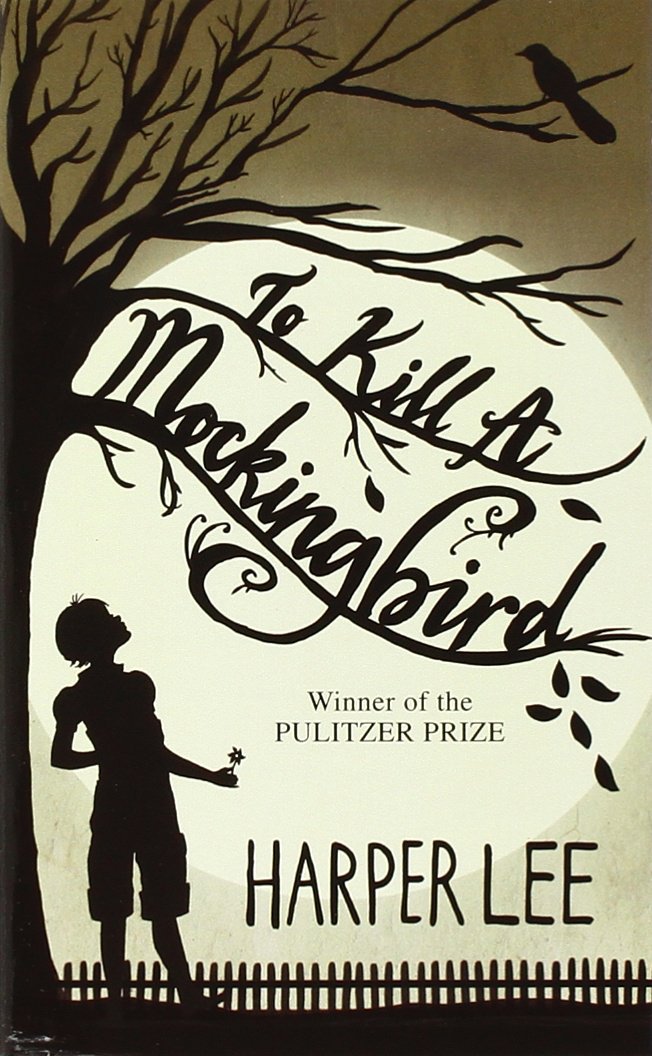To Kill A Mockingbird by Harper Lee
First of all I want to address that in all these weeks of working at it for my English class, I didn't once say Mockingjay out loud in class or around my friends. Even though this could only be accomplished by the necessary preparations before every English lesson, I am very proud of this. (Since I write this already, I'm now probably going to write it incorrectly on my test, because that's my great luck...)
So, on to the actual book. I was going to read it anyway, but now that I had to, it lessened my affection for it. I read it along with my voluntary reading, so it took me ages. No the question that's burning in the minds of great fans: Did I cry? Yes. Buckets.
Summary:
To Kill A Mockingbird is a book about the suppression of African-Americans during the 1930s and is narrated by Scout, a daughter of a lawyer. It tells of her growing up and at the same time deals with a problem that the US still faces today. The novel's sequel is called Go Set a Watchman.
Rating:
3,5 stars please don't kill me
Rating:
3,5 stars please don't kill me
Stick around, the spoilerless section is open for public.
I didn't even hate this book, even though it has a bit of a slow start. Once you get around halfway through it picks up a little. Do I understand why some people crowned this book victor? No. It does have depth and I get that at the time this subject matter was unconventional and Harper Lee had a lot of guts go in this direction. But in the end, it's just a book about Scout growing up and the unfair trial of African-Americans. I know this is all super relevant, but I'm not a classic person. I want plot and characters and sass and a unique thing that I can lose myself in. I'm happy this book exists and that it is as popular as it is, but it's not my favorite book in the world. It never will be, no matter how educated and smart and old and intellectual I'll become. We need to stop branding people who dislike classics as simple or underdeveloped, because really it's all a matter of taste. I understand the story and the beauty of its meaning, but I can't force myself to like it as much as some 'intelligent' people would.
Then let's get to my fun little rant about the injustice of book assignments in high school.
Short story: we had to pick books ourselves for our last assignments, and if course YA is a popular genre around 15-year-olds. So we went to the teacher to get approval of our book. Here's the thing: she told us that we could pick a dystopian novel this time, but not next time, because the vocabulary wasn't diverse enough. Same for John Green, but she appreciated that one a lot more. She prefers us reading literature like Jane Austen or Brave New World. WTF?
If something is old, that does not mean it's better. Actually, it can even be less valuable at times, because it doesn't engage as much with problems we face today. Second of all, all books contain different words, regardless of having the same genre. For example: I'd read a couple of YA books before I got to the Maze Runner by James Dashner. I encountered a word I had never seen before: snicker. It doesn't appear in the Hunger Games, Divergent, the Selection, the Lunar Chronicles or the Host, or at least not as prominently. Every author has his or her own words that fit with the story. And it doesn't make much difference whether you ONLY read 19th century Pride and Prejudice or ONLY read contemporary sci-fi. Yes, one should branch out, but the same goes for our school library. The majority of the English books are classics. Old ≠ better.

No comments:
Post a Comment